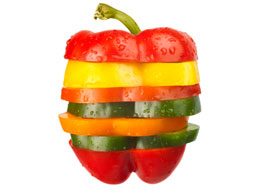
Burn off fat
Both hot and sweet peppers may enhance weight-loss efforts. Research has shown that capsaicin-the substance that gives hot red peppers (or chilies) their kick, and boosts our metabolism-keeps immature fat cells from developing into full-fledged ones. And a study presented in April found that a compound in some sweet peppers (called CH-19 Sweet), which resembles capsaicin, provides similar positive metabolic effects-minus the burning mouth and lips.
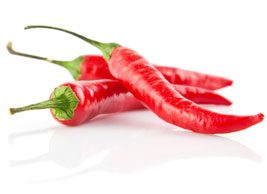
Control cholesterol
Another benefit of capsaicin: A study in the British Journal of Nutrition showed that adding hot chilis to daily meals may protect against the buildup of cholesterol in the blood compared with eating a bland diet. (The hotter the chili, the more capsaicin.)
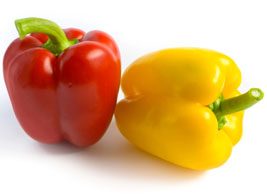
Keep arthritis at bay
Half a cup (125 mL) of chopped red or yellow sweet peppers has almost double your daily needs of vitamin C (green ones also contain lots). That’s a crucial nutrient: Researchers at the University of Manchester in England found that study participants who were in the lowest category of vitamin C intake had more than a three-fold increased risk of inflammatory arthritis compared to those with the highest intake.
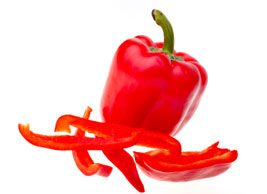
Lower your risk of breast cancer
Toss a sliced red pepper into a salad for about a third of your daily carotenoid needs. Research reported in the International Journal of Cancer in 2009 found that premenopausal women who ate two or more servings of foods rich in carotenoids each day reduced their risk of breast cancer by 17 percent. Why? Carotenoids can interfere with estrogen’s signalling ability.
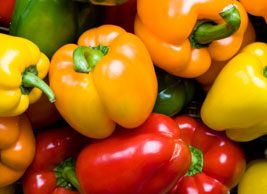
Love your heart and prevent stroke
Whether you like them hot or sweet, peppers contain lots of B vitamins. One cup (250 mL) of chopped banana pepper has 36 percent of your daily vitamin B6 and 10 percent of folate (also a B vitamin); red peppers contain 35 and seven percent, respectively; and yellow peppers, 20 and 10 percent. A Japanese study published this year looked at more than 35,000 women, age 40 to 79 years, who had completed a food-frequency questionnaire. Researchers found that the higher the dietary intakes of both folate and B6, the lower the risk of death from stroke, coronary heart disease and total cardiovascular disease for women.
